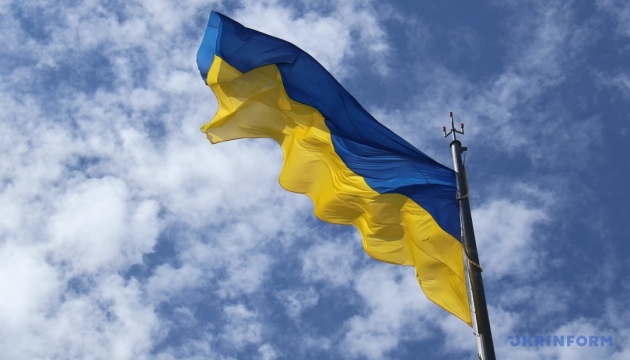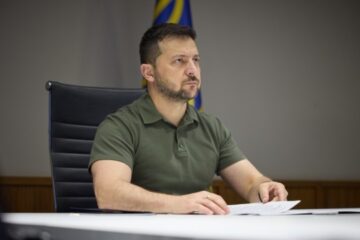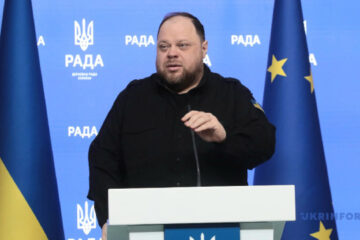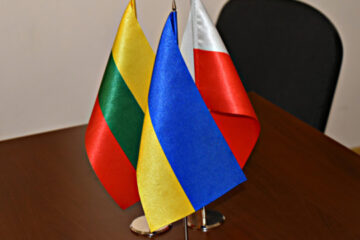On 24 February it will be exactly three years since Russia decided unilaterally to start its brutal aggression on Ukrainians.
As we mark this sad anniversary, I wish to reflect on the enormous impact of this war and the resilience of the Ukrainian people. Since taking up my position in September 2023, I have witnessed first-hand how Russia’s war of aggression has caused immense damage, from the murdering of innocent people, the appalling targeting of civilian infrastructure to the wholesale destruction of towns and cities.
Ukraine and the democratic world should never forget the horror and the innocent victims of Russians aggression.
Bombing of the Mariupol Theater (March 2022):
Russian forces bombed the Mariupol theater, where more than 1,000 women and children were sheltering. The attack resulted in significant loss of life and was classified as a war crime.
Attack on Kharkiv (April 2022):
Russian forces used cluster munitions in Kharkiv, killing nine civilians and injuring 35 others. Among the victims were women and children.
Massive Missile Strikes (December 2023):
Russian forces launched a large-scale missile attack on multiple Ukrainian cities, including Dnipro, Kharkiv, and Lviv. The attack killed at least 58 people and injured more than 160.
Bombing of Zaporizhzhia (January 2025):
A Russian attack on the city of Zaporizhzhia led to the deaths of at least 13 civilians and injuries to 113 others. The attack struck a busy street and caused extensive damage to infrastructure.
These are only few of the multiple Russian attacks on harmless civilians.
The exact number of casualties is difficult to determine. Estimates suggest that since the beginning of the war, more than 12,500 civilians, including 650 children, have been killed.
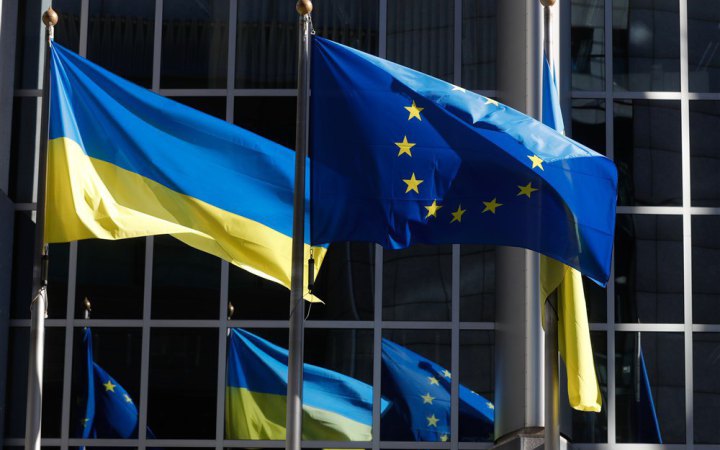
Amid three years of such horrors, the courage and resilience of the Ukrainian army and the people they defend has been remarkable. Putin believed he could conquer Ukraine and submit its people in few days, but he was sorely mistaken. While Ukraine is paying a heavy price for its freedom, I observe every day how its people remain unbroken and unbowed in the face of Russian aggression across all levels of society – from the political leadership to the military, to first responders, to everyday workers of all types, to babushkas enduring electricity blackouts in the cold, and many more. While we in the EU have deep admiration for this resilience, we also know that Ukraine needs more than words of support.
Putin believed he could conquer Ukraine and submit its people in few days, but he was sorely mistaken
This is why the EU has been the largest contributor of support to Ukraine amongst its international partners since February 2022. Total support from the EU across the military, economic, macro-financial, and humanitarian spheres now stands at €134 billion. Meanwhile, military supports from the EU and its Member States exceed €48 billion, and the EUMAM training mission has delivered training to 70,000 Ukrainian soldiers. And I can say unequivocally that the EU is and will steadfastly remain committed to Ukraine. We will deliver increased military and other supports in 2025 and beyond.
In recent weeks, there has been a flurry of reports about possible negotiations to end the war. First and foremost, only Ukraine can determine conditions for negotiations. There can be nothing about Ukraine without Ukraine. Furthermore, this is a war in Europe. And, for any process to lead to a just, comprehensive and lasting peace, Ukraine and the EU must be actively involved. Ukraine needs strong security guarantees as part of any agreement. In this area too, we will support Ukraine.
No one wants peace more than Ukraine
No one wants peace more than Ukraine. It is Ukraine that has been invaded and endured the horrific consequences of this war. Meanwhile, Russia continues its relentless attacks both on the front lines and through nightly drone and missile strikes against critical infrastructure facilities in cities far behind the front line, and it continues to expand its armed forces. The recent drone attack on the sarcophagus of the Chernobyl power plant was the latest particularly reckless act, to add to the destruction of the Nova Kakhovka Dam, and many others. These are not the actions of a country which sincerely wants peace. In order to achieve peace through strength, Ukraine must have a strong position on the battlefield to compel Russia to negotiate in good faith.[GN(1]
Democracy is ingrained in the country’s DNA
There has been increased discussion about elections in Ukraine. Let me be clear: Ukraine is not Russia. Democracy is ingrained in the country’s DNA. In the last 25 years Ukraine has elected 5 different Presidents, who after the end of their term did not to cling to power – like in other neighbouring countries. However, no free and fair elections can take place in a country at war, subjected to daily and nightly attacks. As was agreed by Ukraine’s political groupings within the Jean-Monnet Dialogue facilitated by the EU, Ukraine intends to organise elections within six months following the end of martial law. To make this possible, Ukraine must be assured that any agreement it enters into will be backed by robust security guarantees to prevent future Russian aggression and ensure the integrity of the electoral process.
Globally, the rules-based international order that is central to our European values is under threat from those who would prefer to revert to the darker times of “might is right.” Even in the face of significant challenges, the EU will stand for its principles of democracy, rule of law, respect for human rights, and a rules-based international order with constructive multilateralism at its core. In a more unstable world, there is a keen understanding in Brussels and in Member States that we need to do more in terms of our own defensive readiness. To this end, the Commission and the High Representative are ready to table concrete proposals, and defence stays at the top of the European Council’s agenda. This is Europe stepping up.
Next Monday, many leaders—including the College of Commissioners—will gather in Kyiv to mark the third anniversary of Putin’s brutal and unjustified full-scale invasion. This visit will send a powerful message of support to Ukraine and reaffirm our commitment to its sovereignty, freedom, and democracy.
We will also continue to work with our Ukrainian partners on Ukraine’s EU accession process. Ukrainians have made an unambiguous choice to pursue a European path, even under great duress. Ukraine has made remarkable progress on accession-related reforms, made even more impressive by the fact they are simultaneously fighting an existential war for survival. While the process to become a member of the EU is a rigorous one, Ukrainian determination to do the hard work is clear. And we are equally determined to support Ukraine along the way on its reform journey.
Ukraine’s accession to the EU will not only benefit Ukraine, it will also benefit the EU
Ukraine’s accession to the EU will not only benefit Ukraine, it will also benefit the EU. On the military side, the EU has much to learn from Ukraine due to its experience of fighting a 21st century ground war, and its pioneering development and use of drones and other cutting-edge battlefield technologies. Ukraine has a strong heavy industrial base, an impressive civilian IT sphere, abundant fertile agricultural land, plentiful natural resources, a quality education system, and of course, perhaps its greatest asset – resourceful, entrepreneurial, creative, hard-working people. In short, all of these strengths that Ukraine possesses will also strengthen the EU.
This is the future we are all working for together, even in these very challenging times – a Ukraine that is sovereign and free, strong and safe, prosperous and flourishing, and firmly embedded in the European family.
Katarína Mathernová is an EU Ambassador to Ukraine
* The author’s opinion may not coincide with the position of the agency
Source: Standing with Ukraine

